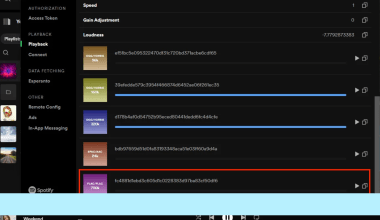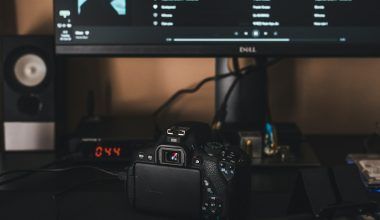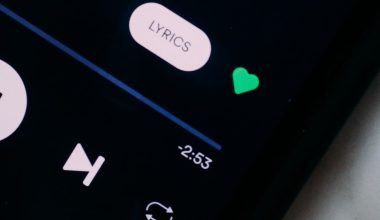Music is not just an art—it’s a valuable asset. When you write a song, you don’t just create a melody or lyrics; you also create something that has rights attached to it. These rights are called publishing rights in music.
If you’ve ever wondered, “What are publishing rights in music?” or “Why are publishing rights important?”—this blog is for you! We’ll explain this concept in the easiest way possible, so you can learn how to protect and earn from your music.
Publishing Rights Explained in Simple Terms
Publishing rights in music are like a legal stamp that says, “You own this song.” It’s a way to make sure the person who creates a song gets credit and payment when it’s used. These rights belong to the composer and lyricist of the song.
For example, if you write the lyrics or melody of a song, you automatically own the publishing rights unless you sell or share them. These rights are different from the rights of the person who records the song.
Why Do Publishing Rights Matter?
Publishing rights are very important because they:
- Protect your music: No one can use your song without permission.
- Earn you money: Whenever someone plays or uses your song, you get paid.
- Give you control: You can decide how your song is used.
Whether you are a new artist or an experienced songwriter, understanding publishing rights in music will help you manage your music better.
Types of Publishing Rights in Music
When we talk about publishing rights, we’re usually referring to two main types:
1. Performance Rights
These are the rights to perform or play your song publicly. For example:
- When your song is played on the radio.
- When it is performed live in a concert.
- When it streams on Spotify or Apple Music.
2. Mechanical Rights
These rights are about copying or reproducing your song. For instance:
- Making CDs or vinyl records of your music.
- Digital downloads of your songs.
Both types of rights help you earn money and protect your work.
How Do You Earn Money from Publishing Rights?
Publishing rights in music give you several ways to earn money. Let’s break it down:
1. Performance Royalties
- When your song is played on the radio, at events, or on streaming platforms, you earn performance royalties. Organizations like ASCAP, BMI, or PRS collect these royalties for you.
2. Mechanical Royalties
- These are payments made every time your song is copied or downloaded. For example, if your song is downloaded from iTunes or included on a CD.
3. Sync Licensing Fees
- If your song is used in a movie, TV show, or ad, you earn a fee. This is called synchronization licensing or sync licensing.
4. Sheet Music Sales
- If your song is written as sheet music and sold, you earn from those sales.
Real-Life Example:
Imagine you write a song. It gets:
- Played on the radio (performance royalties).
- Added to a Spotify playlist (performance royalties).
- Used in a Netflix series (sync license fee).
- Sold as a ringtone (mechanical royalties).
All these activities generate income for you!
Who Manages Publishing Rights in Music?
You can manage your publishing rights on your own, but many artists work with professionals to handle this for them. Here’s who can help:
1. Music Publishers
Music publishers take care of your publishing rights, promote your songs, and make licensing deals. In return, they take a small share of your royalties.
2. Performing Rights Organizations (PROs)
PROs like ASCAP, BMI, or PRS collect performance royalties on your behalf. They ensure you get paid every time your music is played publicly.
3. Mechanical Rights Agencies
Agencies like Harry Fox or MLC collect mechanical royalties for your songs.
4. Royalty Management Platforms
Platforms like Deliver My Tune or Songtrust help artists manage their royalties and rights in one place.
How to Protect Your Publishing Rights in Music
Here’s how you can ensure your music rights are safe:
1. Copyright Your Songs
Copyrighting your songs gives you legal proof of ownership. This makes it easier to fight unauthorized use.
2. Register with a PRO
Sign up with a performing rights organization to collect performance royalties.
3. Work with a Publisher
A music publisher can help you license your songs and maximize your income.
4. Use Technology
Tools like TuneCore and Deliver My Tune make managing your publishing rights easier and more efficient.
Publishing Rights vs. Recording Rights
Many people confuse publishing rights with recording rights, but they are not the same. Here’s a simple explanation:
- Publishing Rights: These are for the song’s composition (lyrics and melody).
- Recording Rights: These are for the sound recording of the song.
For example, if you write a song and someone else records it, you own the publishing rights, while the recording rights belong to the person who recorded it.
Common Myths About Publishing Rights
- “Publishing rights are only for famous artists.”
- Wrong! Every artist benefits from publishing rights, no matter how small their audience is.
- “If I release my song on Spotify, I don’t need publishing rights.”
- Wrong! Spotify pays royalties for streams, but you need publishing rights to collect them.
- “I lose control if I sign with a publisher.”
- Not true. You can negotiate terms to keep control of your work.
How to Maximize Your Publishing Rights Income
Here are some tips to make the most of your publishing rights in music:
1. Retain Ownership
Don’t sell all your rights unless it’s absolutely necessary.
2. License Your Music
Look for opportunities to license your songs for commercials, movies, or TV shows.
3. Keep Track of Your Royalties
Use platforms like Deliver My Tune to monitor your earnings and ensure you’re not missing out on payments.
4. Diversify Your Revenue
Explore different ways to monetize your music, such as sheet music sales, ringtones, or merchandise.
How Deliver My Tune Helps with Publishing Rights
Deliver My Tune is a one-stop platform for artists to manage their music rights. Here’s how it helps:
- Music Distribution: Get your songs on Spotify, Apple Music, and more.
- Publishing Royalty Management: Track and collect royalties easily.
- Copyright Services: Protect your music legally.
- AI Mastering Tools: Make your music sound professional.
By simplifying these processes, Deliver My Tune helps you focus on creating music while ensuring your rights are secure.
Final Thoughts: Take Control of Your Publishing Rights in Music
Understanding publishing rights in music isn’t just important—it’s essential for every artist. These rights not only protect your songs but also help you earn money from them. Whether you’re just starting out or already have a few hits, knowing how to manage your publishing rights will give you the control and income you deserve.
So, take charge of your music career today. Protect your songs, maximize your royalties, and let the world hear your music!
Related Articles:
For further reading, explore these related articles:
- How to Become a Successful Music Artist in India in 2024?
- Promo Cards on Spotify: A Game Changer for Artists
- Understanding ISRC Codes and Their Importance in Tracking and Distributing Your Music
For additional resources on music marketing and distribution, visit Deliver My Tune.






